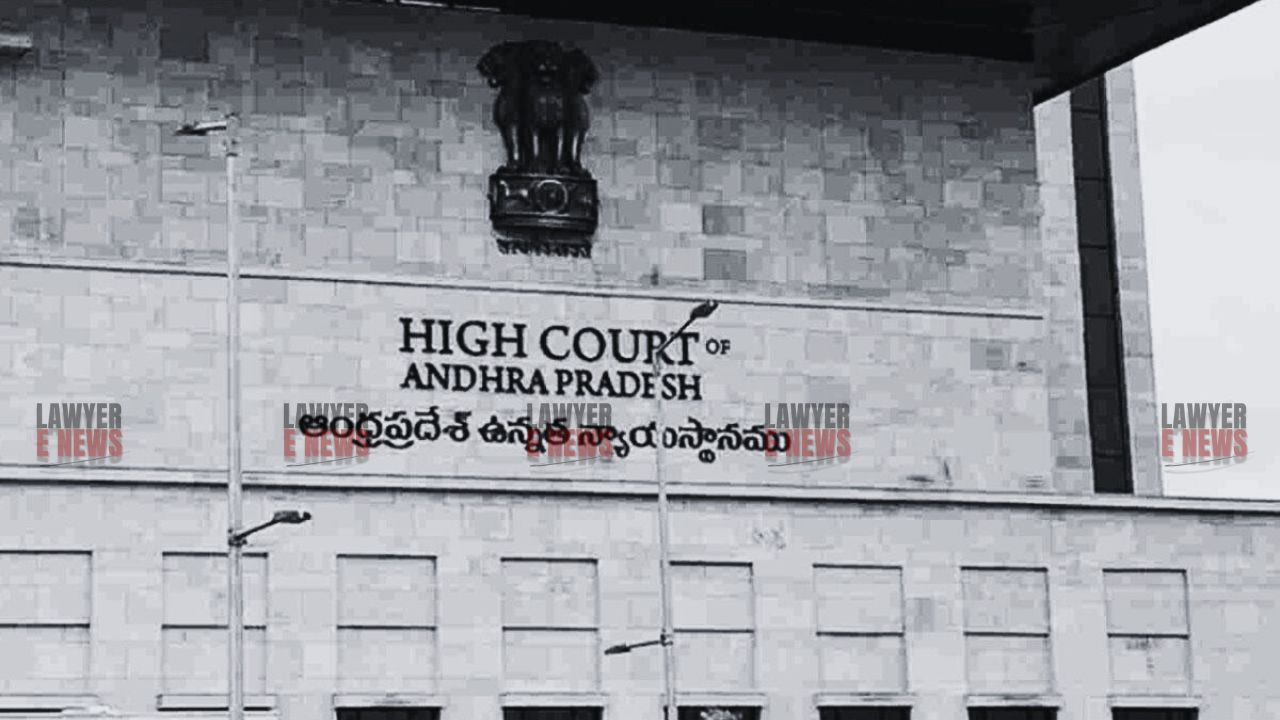-
by Admin
15 February 2026 2:36 AM



The Andhra Pradesh High Court, presided over by Justice Dr. V.R.K. Krupa Sagar, has granted anticipatory bail to the accused in a prominent dowry harassment case. The petitioners, including Morasa Kalyana Sreenivasula Reddy and Morasa Jagannatha Reddy, sought protection under Section 438 of the CrPC amidst allegations spanning both India and the USA. The judgment emphasized the necessity of Central Government sanction for extraterritorial allegations under Section 188 of the CrPC.
The case centers on the marital discord between Morasa Kalyana Sreenivasula Reddy (A1) and his wife, who were married on May 15, 2022. Post-marriage, the couple moved to the USA due to A1's employment. Allegations surfaced involving dowry demands, misappropriation of assets, forced abortion, and attempted murder. The FIR was registered on March 15, 2024, with charges including Sections 498-A, 307, 509, 313, 403, and 409 read with 34 IPC, alongside Sections 3 and 4 of the Dowry Prohibition Act, 1961.
Justice Dr. V.R.K. Krupa Sagar noted that the allegations occurring in the USA, including attempted murder and forced abortion, require prior sanction from the Central Government for prosecution under Section 188 of the CrPC. The defense counsel cited a precedent from the High Court of Telangana to support this interpretation, which the prosecution did not contest.
Focusing on the domestic charges, the court observed that the allegations in India involved oral demands for additional dowry and the sale of gold belonging to the victim by A2. These charges did not necessitate custodial interrogation due to the nature of the dispute and the relationships involved.
Justice Sagar reasoned that while the international allegations required higher authorization, the domestic issues could be addressed without custodial detention. The court granted anticipatory bail, highlighting the petitioners' obligations to cooperate with the investigation and not to intimidate witnesses.
"The allegations of attempted murder and forced abortion occurring outside India require prior sanction from the Central Government as per Section 188 of the CrPC," Justice Sagar remarked. "Given the nature of the domestic disputes and the investigation's progress, custodial interrogation does not seem necessary at this stage."
The Andhra Pradesh High Court's decision to grant anticipatory bail underscores the importance of adhering to legal provisions concerning extraterritorial crimes while addressing domestic allegations independently. This judgment highlights the judiciary's nuanced approach in balancing legal technicalities with the immediate requirements of justice. The case's outcome reinforces procedural adherence in prosecuting cross-border crimes and provides a legal reference for similar future cases.
Date of Decision: July 30, 2024
Morasa Kalyana Sreenivasula Reddy v. The State of Andhra Pradesh
